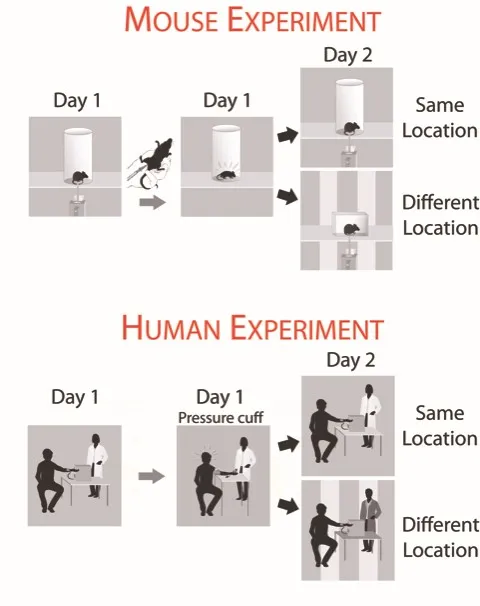Men and women seem to remember pain differently, according to new research at McGill University in Montreal, Canada. When feeling a specific pain for the second time, men feel the sensation more strongly — but women don’t. This link between pain and memory could hold the key to treatment of chronic pain.
The researchers inflicted mild pain on both humans and mice by applying heat to their skin, followed by more intense pain — wearing a tight blood pressure cuff for 20 minutes for humans, or a temporary stomach ache induced by an injection of vinegar for mice — and studied how they reacted to feeling the mild pain a second time. The male participants appeared to react more strongly to the mild pain, while the female participants rated it the same both times.

The team think that the participants associated the heat sensation with the intense pain that followed. Anticipation of the intense pain made the male participants more stressed, which in turn made them more sensitive.
There are two possible reasons for this disparity. “One possibility is that the women aren’t remembering the pain,” explains Dr Jeffrey Mogil, lead author of the study. “The other possibility is that the women are remembering the pain just fine, and they’re just not getting stressed by it.
“Although women are clearly more sensitive to pain than men, they also clearly have more experience with it. Menstrual pain, recurring abdominal pain and headaches are far more common in teenage girls than boys.”
The researchers found that blocking the memory of the pain in the mice by administering the drug Zeta Inhibitory Peptide entirely removed the males’ increased response. “The implications are that, instead of attacking the pain directly in chronic pain patients, you could try to attack the memory of the pain,” Mogil said.
Follow Science Focus onTwitter,Facebook, Instagramand Flipboard